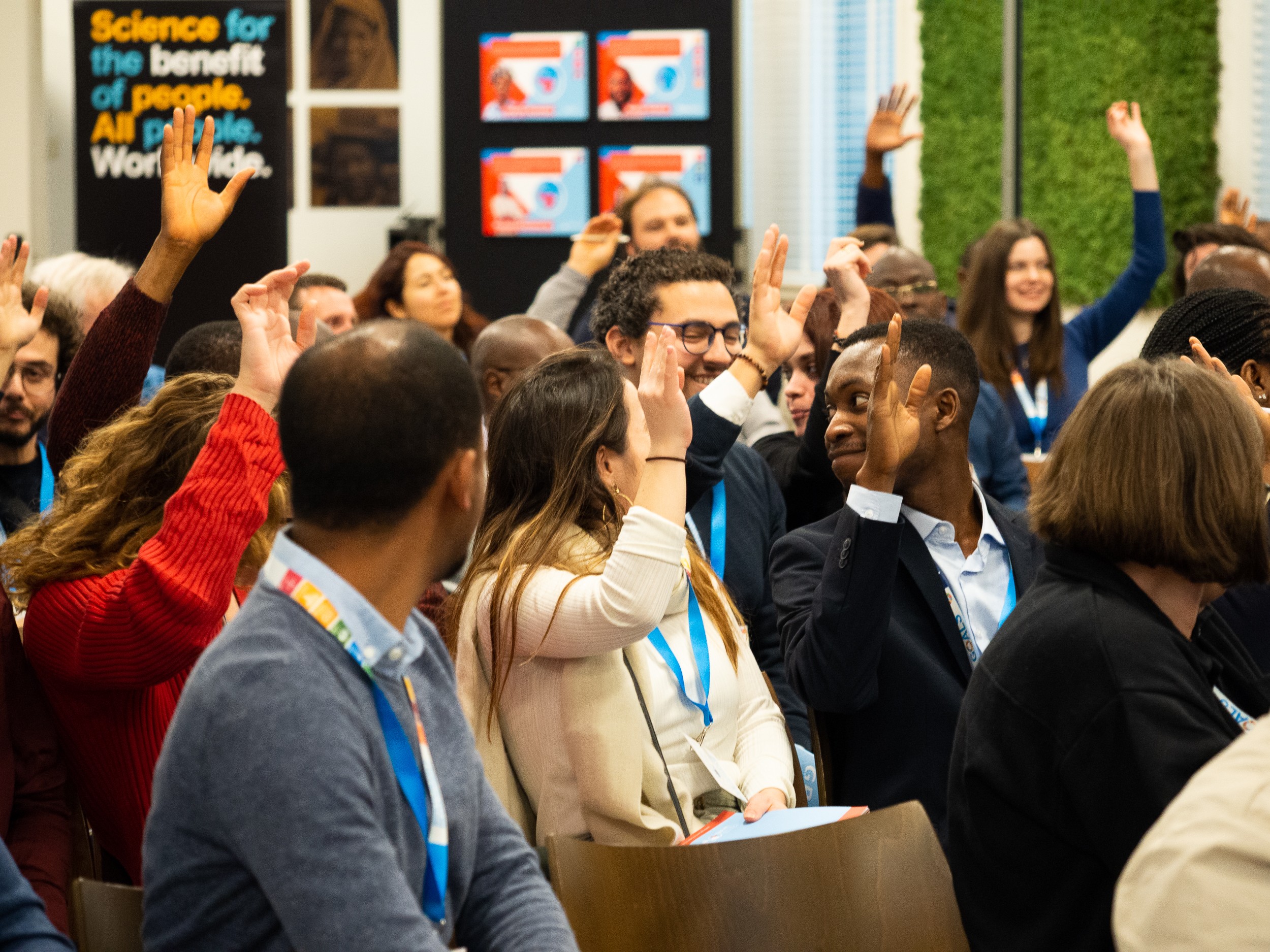From 1 December, academics can apply for PhD projects on Africa at five Dutch universities in the fields of climate change, healthcare and more.
The topics were discussed at a preparatory meeting. (Photo: Anika Vroom)
The inspiration for the GROW (Graduate Research On Worldwide challenges) programme lies in the United Nations Sustainable Development Goals, says Programme Chairman and TU Delft Professor Nick van de Giesen. He was looking for ways to work concretely on the 17 Sustainable Development Goals (SDGs, see below).
According to him, this could be done by bringing graduates from Africa to the Netherlands for PhD research on one of the development goals. He would then like to bring those PhD students together periodically, as the development goals are interrelated. “When you drill wells, the groundwater level drops and that in turn affects trees. In the Netherlands, we are good at examining these type of connections,” says Van de Giesen.
His idea became reality when the Maria Sklodowska-Curie European development programme became involved and which now contributes half the cost of 51 PhD students. TU Delft’s Executive Board contributes a quarter.
‘A good start’
In total, GROW covers 51 PhD positions at five universities: Leiden University, Free University of Amsterdam, University of Amsterdam, Erasmus University Rotterdam and TU Delft. In Africa, 22 academic partners are involved as well as 17 experienced civil society partners.
Van de Giesen would have liked to invite 50 students every year, spread across all 13 Dutch universities, but he considers GROW a good start. Academics can apply from 1 December. GROW’s agenda includes research on climate change, the energy transition, affordable global healthcare, access to clean water, and sustainable urban development. Delta asked Van de Giesen for a comment
’40 applicants per post, 80 procent are from Afrika’
Can you give an example of how such research promotes sustainability?
“Then it’s best to stay close to my own field: water and climate. We do not know that much about the climate in Africa because of the lack of monitoring stations. By working with people there, we hope to set up a monitoring network. We can plug its data into climate models to gain a better understanding of climate change in Africa and how it is manifested.
One example is the observation that the signal strength between two phone masts decreases when it rains. That is interesting in a country that has few rain gauges but plenty of telephone masts. But further research is needed to make that observation applicable.”
What is the level of interest?
“I heard that 3,500 interested individuals had expressed their interest already. Suppose 2,000 of them are serious candidates, that would mean 40 applicants per post. So we will have quite a lot of choice, which usually means good quality. Of those interested, 80% are from Africa. So there is a crying need.”
‘First there was China, now Africa is coming into the picture’
A crying need for what?
“For such a programme. African academics are apparently eager to come to the Netherlands for their PhD research.
At the same time, it is important for the Netherlands to encourage the influx of PhD students from outside Europe to maintain a high number of researchers. I know we might get a Government that thinks differently, but if we want the country to continue to function as a knowledge centre, we need foreign researchers. For a while that was people from China, and now Africa is coming into the picture.”
The largest political party in the Netherlands wants to close the borders. Will that have consequences for this programme?
“This is a European programme, so for us that is not an issue at the moment. I do think we will face stronger headwinds, though. If we would find fewer opportunities within the Netherlands in the future to support GROW, we will have to look further at the European level. There, cooperation with the African Union is high on the agenda. For the Netherlands, the question for the coming years will be how much the new Government cares about science at all.”
- What are the SDGs again?
- To the GROW website.
- At TU Delft, GROW is part of the TU Delft | Global Initiative.
- More on the European Maria Sklodowska-Curie development programme.
Do you have a question or comment about this article?
j.w.wassink@tudelft.nl


Comments are closed.